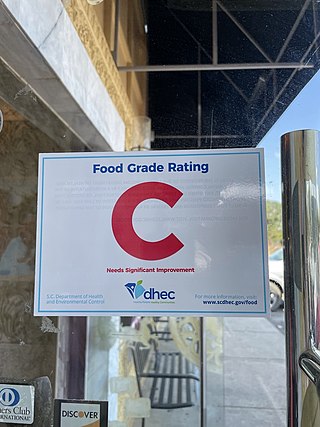Health has a variety of definitions, which have been used for different purposes over time. Health can be promoted by encouraging healthful activities, such as regular physical exercise and adequate sleep, and by reducing or avoiding unhealthful activities or situations, such as smoking or excessive stress. Some factors affecting health are due to individual choices, such as whether to engage in a high-risk behavior, while others are due to structural causes, such as whether the society is arranged in a way that makes it easier or harder for people to get necessary healthcare services. Still, other factors are beyond both individual and group choices, such as genetic disorders.

Preventive healthcare, or prophylaxis, is the application of healthcare measures to prevent diseases. Disease and disability are affected by environmental factors, genetic predisposition, disease agents, and lifestyle choices, and are dynamic processes that begin before individuals realize they are affected. Disease prevention relies on anticipatory actions that can be categorized as primal, primary, secondary, and tertiary prevention.
The National Center for Health Statistics (NCHS) is a U.S. government agency that provides statistical information to guide actions and policies to improve the public health of the American people. It is a unit of the Centers for Disease Control and Prevention (CDC) and a principal agency of the U.S. Federal Statistical System. It is headquartered at University Town Center in Hyattsville, Maryland, just outside Washington, D.C.
The Robert Wood Johnson Foundation (RWJF) is an American philanthropic organization. It is the largest one focused solely on health. Based in Princeton, New Jersey, the foundation focuses on access to health care, public health, health equity, leadership and training, and changing systems to address barriers to health. RWJF has been credited with helping to develop the 911 emergency system, reducing tobacco use among Americans, lowering rates of unwanted teenage pregnancies, and improving perceptions of hospice care.

The South Carolina Department of Health and Environmental Control is the government agency responsible for public health and the environment in the U.S. state of South Carolina. It was created in 1973 from the merger of the South Carolina State Board of Health and the South Carolina Pollution Control Authority.

The University of Nebraska Medical Center (UNMC) is a public academic health science center in Omaha, Nebraska. Founded in 1869 and chartered as a private medical college in 1881, UNMC became part of the University of Nebraska System in 1902. Rapidly expanding in the early 20th century, the university founded a hospital, dental college, pharmacy college, college of nursing, and college of medicine. It later added colleges of public health and allied health professions. One of Omaha's top employers, UNMC has an annual budget of $841.6 million for 2020 to 2021, and an economic impact of $4.8 billion.

The Massachusetts Department of Public Health is a governmental agency of the Commonwealth of Massachusetts with various responsibilities related to public health within that state. It is headquartered in Boston and headed by Commissioner Monica Bharel.
An environmental health officer (EHO), also referred to as an environmental health practitioner (EHP) or public health inspector, is a person responsible for carrying out measures to protect public health, which includes the administration and enforcement of legislation related to environmental health and safety hazards.

Swimming pool sanitation is the process of ensuring healthy conditions in swimming pools. Proper sanitation is needed to maintain the visual clarity of water and to prevent the transmission of infectious waterborne diseases.

Dental Public Health (DPH) is a para-clinical specialty of dentistry that deals with the prevention of oral disease and promotion of oral health. Dental public health is involved in the assessment of key dental health needs and coming up with effective solutions to improve the dental health of populations rather than individuals.

The New Jersey Department of Health (NJDOH) is a governmental agency of the U.S. state of New Jersey. New Jersey's State Board of Health was established in 1877. Its administrative functions were vested in the Department of Health, which was created in 1947. In 1996, the latter was renamed the Department of Health and Senior Services (DHSS). In 2012, senior services programs moved back into the Department of Human Services, and DHSS again became the Department of Health.
James Michael McGinnis is an American physician, epidemiologist, and long-time contributor to national and international health programs and policy, including continuous policy responsibilities for leadership in disease prevention and health promotion through four US Government Administrations. An elected member of the Institute of Medicine of the National Academies, he currently also serves as IOM Senior Scholar, as well as executive director of its Roundtable on Value & Science-Driven Health Care.
The Alabama Department of Public Health is the primary state health agency of the government of the U.S. state of Alabama. It provides a number of public health services to Alabama residents. Chronically underfunded for decades, even by a health professional as governor (Bentley), it ranks near the bottom among states.
The Guatemala Health Initiative (GHI) is a private, humanitarian organization that works to improve the health of the impoverished indigenous population in the remote areas of Guatemala's western highlands. The GHI is affiliated with the University of Pennsylvania. Faculty, students, and staff address health issues affecting the municipality of Santiago Atitlán. GHI aims to strengthen clinical services and promote community health in resource-poor Guatemalan communities.
Public health nursing, also known as community health nursing is a nursing specialty focused on public health. The term was coined by Lillian Wald of the Henry Street Settlement, or, Public health nurses (PHNs) or community health nurses "integrate community involvement and knowledge about the entire population with personal, clinical understandings of the health and illness experiences of individuals and families within the population." Public health nursing in the United States traces back to a nurse named Lillian Wald who, in 1893, established the Henry Street Settlement in New York City and coined the expression "public health nurse". A Public or Community Health Nurse is expected to comply with the duties and limitations of the American Nurse Association (ANA) publication Public Health Nursing: Scope and Standards of Practice.
The Baltimore City Health Department(BCHD) is the public health agency of the city of Baltimore, Maryland. BCHD convenes and collaborates with other city agencies, health care providers, community organizations and funders to "empower Baltimoreans with the knowledge, access, and environment that will enable healthy living."

Victoria Joyce Ely was an American nurse who served in World War I in the Army Nurse Corps and then provided nursing services in the Florida Panhandle in affiliation with the American Red Cross. To address the high infant and maternal death rates in Florida in the 1920s, she lectured and worked at the state health office. Due to her work, training improved for birth attendants and death rates dropped. After 15 years in the state's service, she opened a rural health clinic in Ruskin, Florida, providing both basic nursing services and midwife care. The facility was renamed the Joyce Ely Health Center in her honor in 1954. In 1983, she was inducted into Florida Public Health Association's Hall of Memory and in 2002 was inducted into the Florida Women's Hall of Fame.

The Tennessee Department of Health (TDH) is the primary agency of state government in Tennessee responsible for public health. Its workforce provides a variety of direct and indirect services to residents and visitors in all 95 counties of the state.
Austin Public Health is the official health department of the city of Austin, Texas, which operates programs to improve general health in the community.

Food safety is the process of ensuring safe food consumption in the country and preventing diseases outbreaks by approving laws that ensure safety and sanitation in food industries. In Qatar, Food safety is a major concern because unsafe food can result in foodborne diseases outbreaks and cause death due to the fact that contaminated food consumption can affect everyone with severe impacts on elderly, children, infants, people with chronic diseases such as diabetes, pregnant women, and people with a compromised immune system. Foodborne illnesses are a result of eating contaminated food with different types of pathogens.










